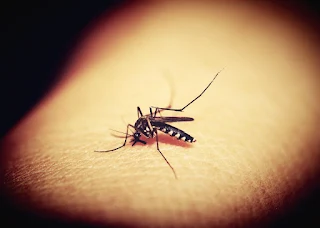Spiders Bites
Spiders are a ubiquitous presence, found in nearly every corner of the world. While they often evoke fear and intrigue, the reality is that most spiders are harmless to humans. However, understanding spider bites, their potential effects, and how to manage them is essential for those rare instances when a bite does occur.
The Nature of Spiders:
There are over 45,000 known species of spiders, and they all produce venom used primarily to subdue their prey. Yet, only a small fraction of these species have fangs capable of penetrating human skin and delivering venom potent enough to cause harm.
Symptoms of a Typical Spider Bite:
A bite from a non-venomous spider might result in:
- Localized
redness and swelling.
- A
small puncture mark.
- Mild
itching or a slight burning sensation.
- A small bump or blister.
Venomous Spiders to Be Aware Of:
- Black
Widow: These spiders are identifiable by their
black color and the iconic red hourglass shape on their abdomen. A bite
might cause intense pain, muscle stiffness, fever, chills, and abdominal
cramps.
- Brown
Recluse: They have a characteristic violin-shaped
marking on their back. Bites can lead to a necrotic wound, where the
surrounding tissue dies, sometimes leaving a deep scar.
- Australian Funnel-Web Spiders: Their bites can cause serious symptoms, including difficulty breathing, but antivenom is available and effective.
Immediate Care for Spider Bites:
1. Clean the Area: Gently wash the bite with soap and water to
prevent infections.
2. Cold Compress: Apply a cold pack or cloth filled with cold
water to reduce swelling and pain.
3. Elevate: If bitten on a limb, elevate it to prevent swelling.
4. Avoid Scratching: Scratching can cause the bite to swell, itch more, or become infected.
When to Seek Medical Attention:
While most spider bites are harmless, it's crucial to consult a
healthcare professional if:
- The
pain and swelling increase after 24 hours.
- The
bite area becomes infected.
- You
suspect a bite from a venomous spider.
- You experience allergic reactions like difficulty breathing, chest pain, or severe swelling.
Prevention is Key:
To reduce the risk of spider bites:
To reduce the risk of spider bites:- Wear
gloves when gardening or handling stored items.
- Shake
out shoes, clothes, and bedding before use.
- Keep
homes clean and decluttered to reduce hiding spots for spiders.
- Use insect repellents and consider using spider traps in areas where spiders are common.
Mosquitoes Bites
Mosquitoes are more than just pesky insects that cause itchy bites; they are also carriers of various diseases that affect millions worldwide. Understanding mosquito bites, their effects, and how to manage them is crucial for both comfort and health.
The Nature of Mosquitoes:
There are over 3,500 species of mosquitoes, but only a few are responsible for transmitting diseases to humans. Female mosquitoes bite to obtain the protein from blood, which aids in egg production. When a mosquito bites, it injects saliva into the bloodstream, which contains proteins that can cause mild allergic reactions in humans.
Symptoms of a Typical Mosquito Bite:
A bite from a mosquito usually results in:
- A
raised, itchy bump.
- Redness
and localized swelling.
- A
small puncture mark in the center of the bump.
- In some cases, a larger area of swelling or even a blister.
Diseases Transmitted by Mosquitoes:
- Malaria:
Caused by a parasite and transmitted through the bite of infected
Anopheles mosquitoes. Symptoms include fever, chills, and flu-like
illness.
- Dengue:
A viral infection causing severe flu-like symptoms, including severe
muscle and joint pain.
- Zika
Virus: Linked to birth defects and can cause
symptoms like fever, rash, and joint pain.
- West
Nile Virus: Most people show no symptoms, but some
can develop fever, headache, body aches, and, in severe cases,
neurological effects.
- Chikungunya: Causes joint pain, fever, and rash.
Immediate Care for Mosquito Bites:
1. Avoid Scratching: While it's tempting, scratching
can break the skin, leading to infections.
2. Topical Treatments: Apply calamine lotion,
hydrocortisone cream, or a cold compress to reduce itching and swelling.
3. Oral Antihistamines: Can help reduce allergic reactions
and itching.
4. Keep Clean: Ensure the bite area is clean to prevent
secondary infections.
Reducing the risk of mosquito bites is the best way to prevent
associated diseases.
- Repellents:
Use insect repellents containing DEET, picaridin, or oil of lemon
eucalyptus.
- Clothing:
Wear long-sleeved shirts and long pants when outdoors, especially during
dawn and dusk when mosquitoes are most active.
- Netting
and Screens: Use bed nets if sleeping outdoors and
ensure window screens are in good repair.
- Eliminate Breeding Grounds: Regularly empty standing water from containers, as these are breeding grounds for mosquitoes.
While both spider and mosquito bites can be bothersome,
understanding their differences is crucial for effective treatment. By
recognizing the unique characteristics of each bite and taking preventive
measures, you can reduce the risk of complications. Always stay informed, and
when in doubt, seek medical advice.





